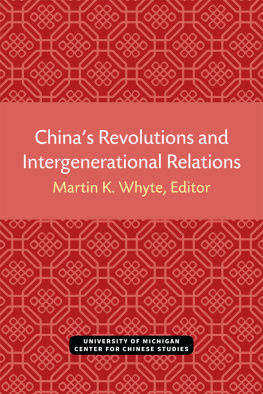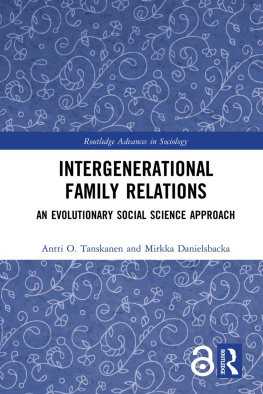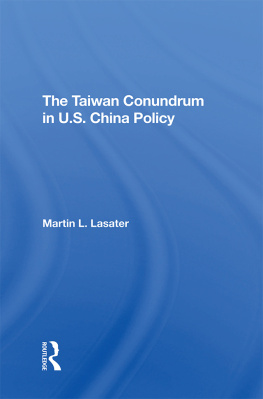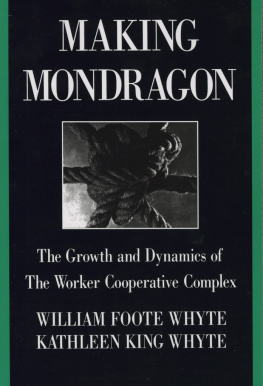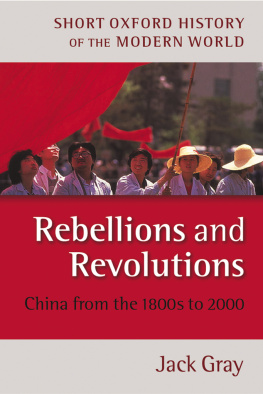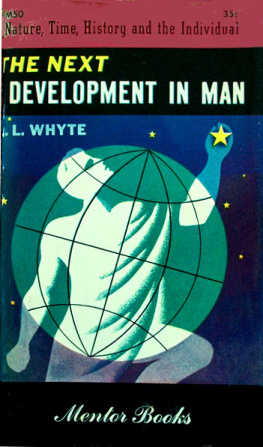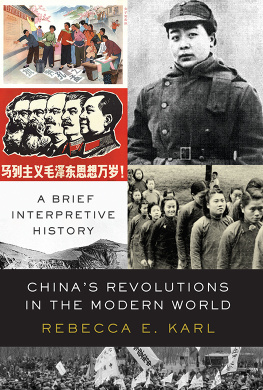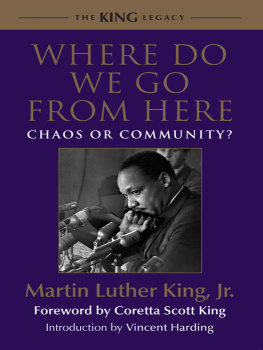Martin King Whyte - China’s Revolutions and Intergenerational Relations
Here you can read online Martin King Whyte - China’s Revolutions and Intergenerational Relations full text of the book (entire story) in english for free. Download pdf and epub, get meaning, cover and reviews about this ebook. year: 2020, publisher: Kenneth G. Lieberthal and Richard H. Rogel Center for Chinese Studies, genre: Home and family. Description of the work, (preface) as well as reviews are available. Best literature library LitArk.com created for fans of good reading and offers a wide selection of genres:
Romance novel
Science fiction
Adventure
Detective
Science
History
Home and family
Prose
Art
Politics
Computer
Non-fiction
Religion
Business
Children
Humor
Choose a favorite category and find really read worthwhile books. Enjoy immersion in the world of imagination, feel the emotions of the characters or learn something new for yourself, make an fascinating discovery.
- Book:China’s Revolutions and Intergenerational Relations
- Author:
- Publisher:Kenneth G. Lieberthal and Richard H. Rogel Center for Chinese Studies
- Genre:
- Year:2020
- Rating:5 / 5
- Favourites:Add to favourites
- Your mark:
- 100
- 1
- 2
- 3
- 4
- 5
China’s Revolutions and Intergenerational Relations: summary, description and annotation
We offer to read an annotation, description, summary or preface (depends on what the author of the book "China’s Revolutions and Intergenerational Relations" wrote himself). If you haven't found the necessary information about the book — write in the comments, we will try to find it.
China’s Revolutions and Intergenerational Relations — read online for free the complete book (whole text) full work
Below is the text of the book, divided by pages. System saving the place of the last page read, allows you to conveniently read the book "China’s Revolutions and Intergenerational Relations" online for free, without having to search again every time where you left off. Put a bookmark, and you can go to the page where you finished reading at any time.
Font size:
Interval:
Bookmark:

CHINAS REVOLUTIONS AND INTERGENERATIONAL RELATIONS
Martin King Whyte, Editor
CENTER FOR CHINESE STUDIES
THE UNIVERSITY OF MICHIGAN
ANN ARBOR
Open access edition funded by the National Endowment for the Humanities/Andrew W. Mellon Foundation Humanities Open Book Program.
MICHIGAN MONOGRAPHS IN CHINESE STUDIES
ISSN 1081-9053
SERIES ESTABLISHED 1968
VOLUME 96
Published by
Center for Chinese Studies
The University of Michigan
Ann Arbor, Michigan 48104-1608
2003 The Regents of the University of Michigan
Library of Congress Cataloging-in-Publication Data
Chinas revolutions and intergenerational relations / Martin King Whyte, editor.
p. cm. (Michigan monographs in Chinese studies, ISSN 10819053 ; v. 96)
Includes bibliographic references and index.
ISBN 0-89264-160-6 (alk. paper)
1. Intergenerational relationsChina. 2. Parent and adult childChina. 3. Aging parentsChina. 4. Family life surveysChina. I Whyte, Martin King. II. Michigan monographis in Chnese studies ; no. 96.
HV740.Z9 1583 2003
305.20951dc21
2002067723
ISBN 978-0-89264-160-4 (hardcover)
ISBN 978-0-472-03809-1 (paper)
ISBN 978-0-472-12755-9 (ebook)
ISBN 978-0-472-90150-0 (open access)
The text of this book is licensed under a Creative Commons Attribution-NonCommercial-NoDerivatives 4.0 International License: https://creativecommons.org/licenses/by-nc-nd/4.0/
Dedicated to the memory of
Professor Yuan Fang
(19182000)
Teacher, Sociologist, and Patron of International Academic Collaboration
CONTENTS
By Martin King Whyte
By Yuan Fang and Martin King Whyte
By Wang Feng, Xiao Zhenyu, and Zhan Jie
By Martin King Whyte
By Albert I. Hermalin and Shiauping R. Shih
By Shengming Yan, Jieming Chen, and Shanhua Yang
By Martin King Whyte and Xu Qin
By Jieming Chen
By Martin King Whyte, Albert I. Hermalin, and Mary Beth Ofstedal
By Albert I. Hermalin, Mary Beth Ofstedal, and Shiauping R. Shih
By Jennifer C. Cornman, Jieming Chen, and Albert I. Hermalin
By Martin King Whyte
FIGURES, TABLES, APPENDIX
Figures
Tables
Appendix
Chinas Revolutions and Intergenerational Relations serves as the final report of a pioneering and complex collaborative survey involving Chinese and American researchers. Our collective goal was to understand how the many wrenching changes experienced by Chinese families in the twentieth century (detailed in affected the relationship between grown children and their aging parents. More generally, we wanted to capture and understand the balance of change and continuity in the family life of urban Chinese during the last decade of the century.
This volume is a testament to both the fruits and the difficulties of collaborative academic research between our two countries. The project whose primary results are reported in these pages was originally conceived in 1988. What was intended as a three-year project eventually stretched out for more than a decade, with additional years needed to prepare the resulting papers for publication. At a number of points the frustrations and delays experienced tempted those involved to throw up their hands and abandon the project. It is thanks to the dedication and support of funding agencies, researchers, and institutions in both China and the United States that this did not happen. Before presenting what we have learned about how relations between aging parents and their grown children were affected by Chinas multiple twentieth-century revolutions, I want to describe briefly the origins and history of this project and give thanks to those who helped bring it to a successful conclusion.
The 1980s were years of dynamic changes in Chinese society. After the death of Mao Zedong in 1976 and the launching of a broad program of reforms under the leadership of Deng Xiaoping in 1978, many past policies were reversed. The establishment of diplomatic relations between the United States and the Peoples Republic of China (PRC) in 1979 made it possible for the first time in a generation for American researchers to conduct research within China, and raised the possibility of scholarly collaboration between Americans and the Chinese. But would this possibility extend to the discipline of sociology, a field with a problematic history within the PRC?
Following the Soviet precedent, sociology had been abolished as a discipline in the PRC in 1952, and an attempt by Chinese sociologists in 1957 to gain approval for sociologys rehabilitation was rejected, with the sociologists leading this effort branded as rightists and consigned to political and academic oblivion for the next two decades. However, by 1979 the political atmosphere in China had changed decisively, and sociology and a number of other previously banned disciplines were formally reestablished. Many of Chinas surviving sociologists were restored to academic positions, where they were given responsibility for rebuilding the institutional structures of the field. Courses and majors in sociology soon sprang up in a variety of Chinese universities, and sociology students and researchers traveled abroad to receive training and renew academic and personal ties to the international research community.
It was in this heady atmosphere that the announcement was made by the Luce Foundation in the late 1980s of a grant program to support collaborative academic research between the United States and China. I had already been involved in one collaborative social survey project in 1987 in Chengdu, working with sociologists at Sichuan University. I discussed the new funding opportunity announced by Luce with colleagues at the University of Michigan, where I then taught, and particularly with Ronald Freedman, the late Leslie Kish, Albert Hermalin, and Barbara Anderson. The general topic of continuity and change in Chinese families seemed an important as well as a politically noncontroversial focus for potential collaboration between American and Chinese sociologists, and Ron Freedman used the occasion of a planned trip to Beijing to explore collaboration possibilities there.
After encouraging talks and subsequent communications with sociologists at Beijing University (Beida), and particularly with Pan Naigu, Yuan Fang, and Yang Shanhua, my colleagues and I decided to apply for a Luce Foundation grant to study urban families in Baoding, Hebei, in collaboration with the Department of Sociology at that university. (Baoding was chosen because our Beida colleagues were already using it as a regular field research site for their students and had established the necessary bureaucratic contacts and approvals there.) Our plan called for two surveys to be conducted in Baoding, one in 1990 focusing on the process of mate choice and resulting husband-wife relations, and a second survey in 1991 focusing on aging and intergenerational relations. The surveys that Albert Hermalin was launching in Taiwan in 1989 focusing on aging and intergenerational relations on that island would serve as a model and comparative base for this second Baoding survey.
We were successful in obtaining a very generous grant in 1989 from the Luce Foundation to support our project, but then political events intervened to interrupt our work almost before it had begun. The Tiananmen student demonstrations of 1989 disrupted all aspects of life in Beijing, not least at Beijing University. The June 4th military suppression of those demonstrations and the subsequent government crackdown threw into doubt the future of our planned collaborative survey project. Eventually, in consultation with our Beida colleagues from afar, we decided to proceed but to postpone our scheduled first survey on marriage until 1991. However, in 1990 Chinas State Education Commission, under whose authority Beida falls, issued a secret directive banning collaborative social survey projects involving foreigners. Our Beida colleagues decided to go ahead with the 1991 marriage survey in Baoding anyway, although on a reduced scale, since they could no longer formally collaborate with the University of Michigan or receive funds from our Luce grant. (Wang Feng, who had received a Ph.D. in sociology at Michigan in 1987 and then remained in the U.S. on a postdoctoral fellowship, was able to participate in the 1991 survey due to his Chinese citizenship.)
Font size:
Interval:
Bookmark:
Similar books «China’s Revolutions and Intergenerational Relations»
Look at similar books to China’s Revolutions and Intergenerational Relations. We have selected literature similar in name and meaning in the hope of providing readers with more options to find new, interesting, not yet read works.
Discussion, reviews of the book China’s Revolutions and Intergenerational Relations and just readers' own opinions. Leave your comments, write what you think about the work, its meaning or the main characters. Specify what exactly you liked and what you didn't like, and why you think so.

